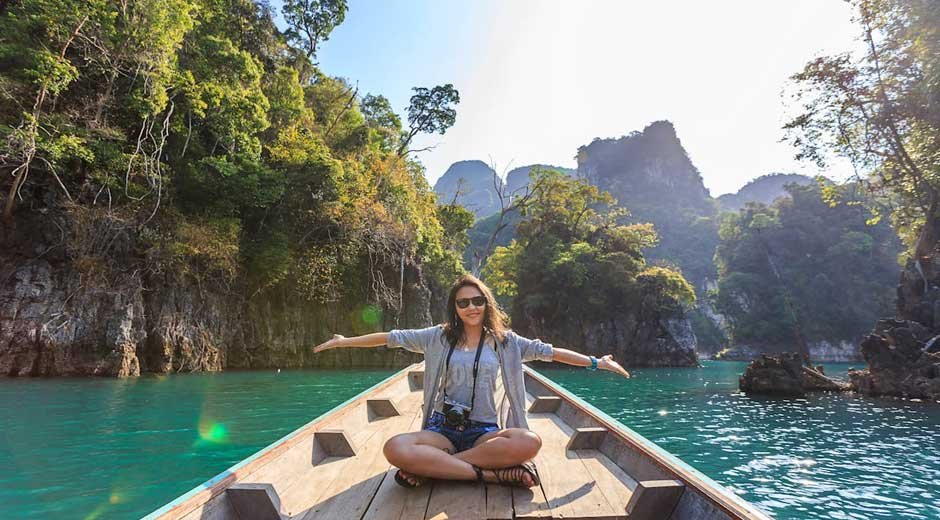Traveling to a new city can be an exciting adventure, offering opportunities to explore unfamiliar cultures, savor unique cuisines, and create unforgettable memories. However, it also comes with its own set of challenges, particularly for women.
From selecting secure accommodations to using trusted transportation options, taking proactive steps can significantly enhance personal safety.
This guide provides essential tips for women travelers to stay safe and make the most of their experiences in unfamiliar cities.
Understand Your Environment
Before you set off on your journey, dedicate some time to research the city you’ll be visiting. Get to know the local customs, cultural norms, and which areas are safe or unsafe. Websites, travel blogs, and forums can offer valuable insights based on the experiences of fellow travelers.
Technology can serve as an essential resource for understanding your environment. With its AI-enhanced features, Google Lens can deliver real-time information about historical sites, landmarks, and local attractions.
Just aim your camera at a point of interest and pose a question like “What is this building?” or “Where is the nearest restaurant?” Google Lens can quickly provide answers and suggestions, enhancing the efficiency and depth of your exploration.
Use Trusted Transportation Options
When traveling, using trusted transportation options is essential for maintaining safety and avoiding potential risks. Opt for well-known, licensed services like registered taxis or reputable rideshare apps such as Uber and Lyft.
As the ridesharing industry grows, so does its market. According to GlobeNewswire, the global market is projected to soar from $113.2 billion in 2023 to a staggering $305.3 billion by 2030, fueled by a 15.2% CAGR. This rapid growth is driven by increased smartphone adoption, especially in emerging markets, and the expansion of ride-sharing companies into these regions. However, despite this growth, there are safety concerns. Uber sexual assault lawsuits have been filed by individuals across various regions.
These lawsuits involve cases where passengers have experienced sexual assault and other forms of sexual misconduct by Uber drivers. TorHoerman Law notes that these cases focus on Uber’s failure to implement sufficient safety measures and conduct thorough background checks on drivers.
The number of sexual assault lawsuits against Uber has surged to 387, currently pending in multidistrict litigation. To mitigate such risks, always track your ride in real-time and share the trip details with a trusted friend.
Dress Appropriately for the Culture
The Travel notes that in conservative areas, religious sites, or Muslim countries, tourists are encouraged to follow local dress codes.Modesty is key in many of these regions, and failure to adhere to the local dress expectations can lead to negative consequences. On the other hand, even in more liberal countries like Italy and Greece, there are dress codes in place to preserve cultural sites. For example, some destinations have banned certain types of clothing or footwear, such as flip-flops, to protect sacred areas.
Stay in Safe Areas
When choosing accommodations, prioritize safety by selecting hotels or guesthouses in well-lit, populated areas. Consider factors such as proximity to public transportation, restaurants, and popular attractions. Using travel apps and online reviews can help you assess the safety of neighborhoods before booking.
According to Lonely Planet, some travelers prefer booking accommodations with women owners, feeling a sense of security due to their attentiveness to safety concerns. Women are often mindful of things like avoiding crowds and providing safer alternatives to touristy spots, which can be particularly reassuring for solo travelers.
This sense of community and protection is often a helpful advantage when navigating unfamiliar destinations.
Be Cautious When Using Public Wi-Fi
Using public Wi-Fi networks while traveling can put your personal information at serious risk.
According to 1News, a common threat is an “evil twin” attack, where a hacker creates a fake Wi-Fi hotspot with a name similar to a legitimate network. When you connect to this network, the attacker can potentially intercept your data, including sensitive information like passwords or bank details. Another threat is packet sniffing, where hackers use programs to monitor and steal data transmitted over unsecured networks.
A simple but powerful way to protect your data is to use a Virtual Private Network (VPN). A VPN encrypts your internet connection, making it much harder for attackers to intercept your information.
FAQs
What should you do if you feel unsafe while traveling?
If you feel unsafe while traveling, stay calm and assess your surroundings. Reach out to local authorities, hotel staff, or reliable locals for assistance. Steer clear of isolated areas and stick to well-populated locations. If needed, get in touch with your embassy or consulate for support, and make sure your emergency contacts are kept informed.
Are there specific apps I should download for safety?
Yes, several safety apps can enhance travel security. Consider downloading apps like bSafe for emergency alerts, Life360 for location sharing, and Find My Friends for tracking companions. Additionally, many rideshare apps like Uber and Lyft allow you to share trip details with others for added safety.
What are the signs that a public Wi-Fi network is insecure?
Signs of an insecure Wi-Fi network include a lack of password protection, a network name that doesn’t match the location, and slow connection speeds. Additionally, if you notice unusual pop-ups or redirects while browsing, it’s a strong indicator of a compromised network.
Exploring a new city is an exciting adventure that can lead to unforgettable memories. By adopting proactive safety measures, women can enhance their confidence and enjoy peace of mind while traveling. Focus on your personal safety, stay aware of your surroundings, and trust your instincts to make your trip both secure and enjoyable.

